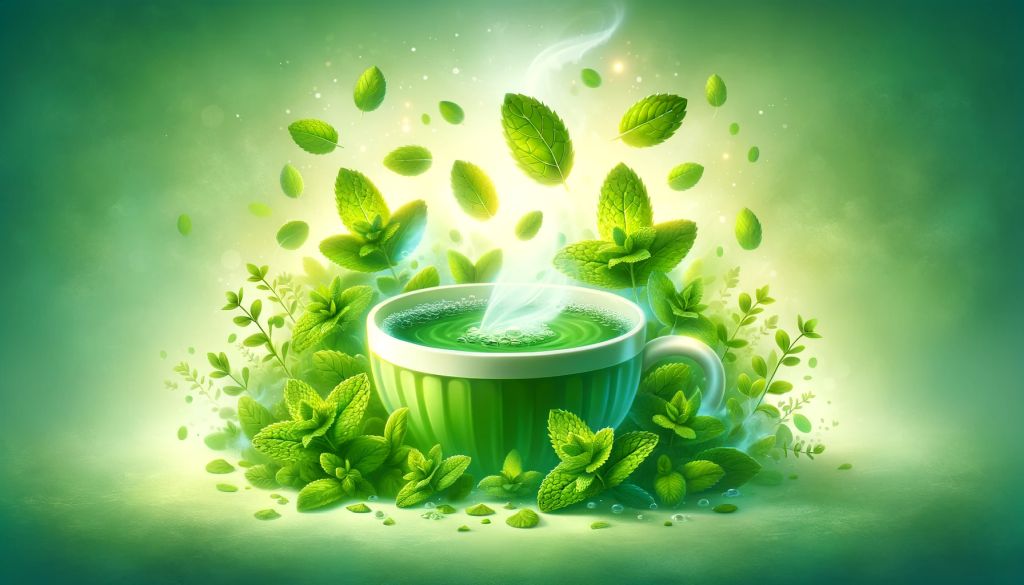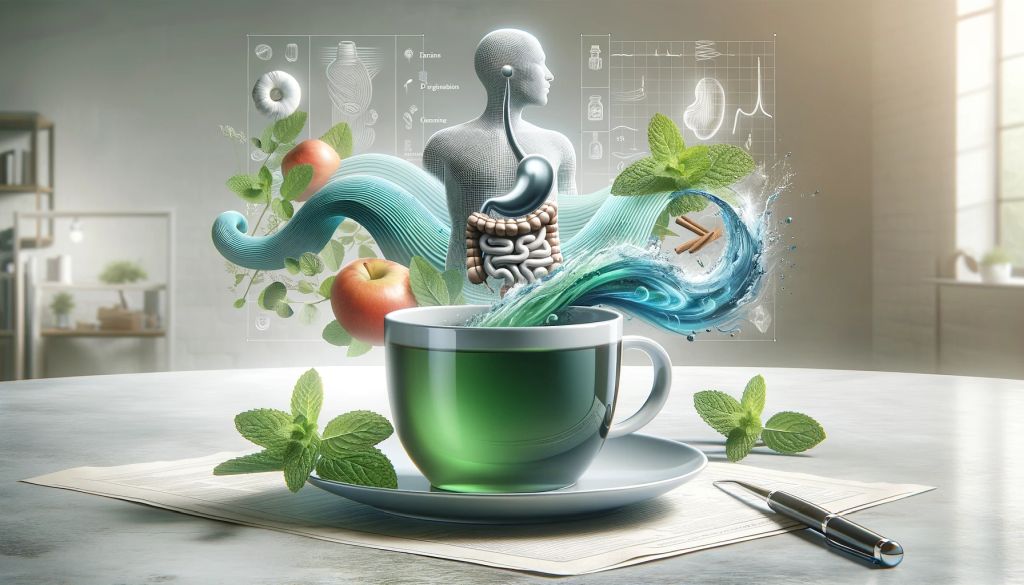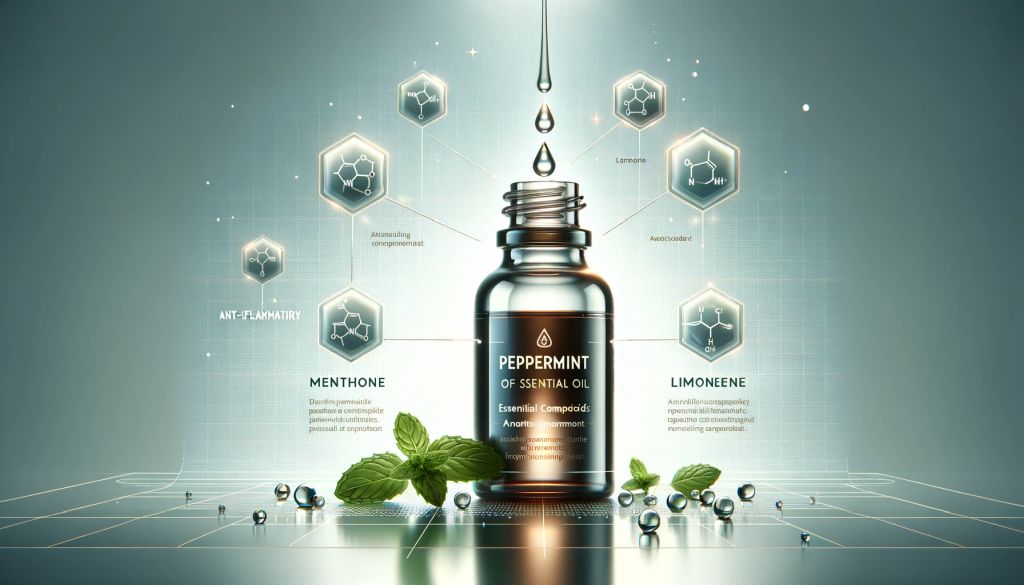Unveiling the Secrets: How Mint Tea Enhances Your Health & Wellness
If you’re looking for a refreshing and healthy beverage to add to your daily routine, you might want to consider drinking mint tea. Not only is it a delicious drink that can be enjoyed hot or cold, but it also offers a range of health benefits that can improve your overall well-being.
Mint tea steers fresh or dried mint leaves in hot water. The tea has a cool, refreshing flavor and aroma that can help to soothe your senses and reduce stress. Drinking mint tea can also improve digestion, relieve nausea and headaches, and boost your immune system. Additionally, mint tea is low in calories and sugar, making it a great alternative to sugary drinks like soda and juice.
Research has shown that mint tea may have anti-inflammatory and antioxidant properties, which can help to protect your body against chronic diseases like cancer and heart disease. It can also help to improve your oral health by freshening your breath and reducing the growth of harmful bacteria in your mouth. So, if you’re looking for a simple and natural way to improve your health, try adding a cup of mint tea to your daily routine.
What is Mint Tea
Mint tea is an herbal tea made from the leaves of the mint plant. It is a popular beverage enjoyed worldwide for its refreshing taste and numerous health benefits. Mint tea can be made using diverse types of mint, including peppermint, spearmint, and water mint. Each type of mint has a unique flavor profile and aroma.
Mint tea can be made using tea bags or loose-leaf tea. To prepare a cup of mint tea, place a tea bag or a teaspoon of loose-leaf tea in a cup and pour hot water over it. Let it steep for a few minutes, then remove the tea bag or strain the loose-leaf tea. You can add honey or lemon to sweeten the tea or enjoy it plain.
Fresh mint leaves can also be used to make mint tea. Add a handful of fresh mint leaves to a cup of hot water and let it steep for a few minutes. Strain the leaves and enjoy the tea.
Mint tea is a great alternative to traditional tea and coffee. It is naturally caffeine-free and can be enjoyed any time of the day. The next time you want a refreshing and healthy beverage, try a cup of mint tea.
Nutritional Profile of Mint Tea
Mint tea is a caffeine-free, sugar-free, and low-calorie beverage that is a great alternative to sugary drinks. It is made from the leaves of the peppermint or spearmint plant and has a refreshing and soothing taste.
Mint tea is rich in antioxidants, which help to protect your body from damage caused by free radicals. Free radicals are harmful molecules that can cause cellular damage and lead to chronic diseases such as cancer and heart disease.
In addition to antioxidants, mint tea contains several important nutrients, including vitamins C, A, and potassium. Vitamin C is an essential vitamin that helps to boost your immune system and protect your body from infections. Vitamin A is important for healthful vision, while potassium helps to regulate your blood pressure and keep your heart healthy.
Mint tea is also a major source of hydration. Drinking enough water is essential for good health, and mint tea can help you stay hydrated throughout the day. Studies have shown that drinking tea, including mint tea, can be just as hydrating as drinking water.
Overall, mint tea is a healthy and refreshing beverage that can provide various health benefits. Whether you enjoy it hot or cold, it’s a terrific way to stay hydrated and boost your intake of important nutrients and antioxidants.
Health Benefits of Mint Tea
Mint tea is a refreshing and delicious beverage consumed for centuries due to its potential health benefits. Here are some of the ways that mint tea may benefit your health:
Digestion
Mint tea is known for its ability to soothe digestive issues such as gas, bloating, and indigestion. The menthol in mint helps to relax the muscles in the digestive tract, which can ease discomfort and promote healthy digestion. Additionally, mint tea may be helpful for those with irritable bowel syndrome (IBS) as it can help to alleviate symptoms such as abdominal pain and bloating.
Cold and Flu
Mint tea may also be beneficial for those suffering from a cold or flu. The antibacterial and antiviral properties of mint can help fight off infections and boost the immune system. Additionally, the menthol in mint can help to relieve congestion and ease coughing.
Nausea and Headaches
Mint tea may also be helpful for those experiencing nausea or headaches. The soothing properties of mint can help to calm the stomach and relieve nausea, while menthol can help to alleviate headaches.
Cognitive Function
Mint tea may also have potential health benefits for cognitive function. The aroma of mint has been shown to improve memory and alertness, making it an excellent choice for when you need to focus and concentrate.
Stress
Finally, mint tea may be helpful for reducing stress and promoting relaxation. The calming properties of mint can help ease tension and promote a sense of calm, making it a wonderful choice for when you need to unwind after a long day.
Overall, mint tea is a delicious and healthy beverage that may offer a range of potential health benefits. Whether you are looking to soothe digestive issues, fight off infections, or simply relax and unwind, mint tea is worth a try!
Mint Tea and Oral Health
Mint tea is a refreshing and delicious beverage that not only tastes great but also has numerous health benefits. One of the most significant benefits of mint tea is its positive impact on oral health.
If you struggle with bad breath, mint tea can help freshen your breath naturally. Mint contains compounds that neutralize the odor-causing bacteria in your mouth, leaving your breath smelling fresh and clean. Instead of relying on chewing gum or breath mints, try sipping on a cup of mint tea after your meals to help keep your breath smelling fresher for longer.
In addition to its breath-freshening properties, mint tea can also help combat plaque buildup in your mouth. Plaque is a sticky film of bacteria that can accumulate on your teeth and gums, leading to tooth decay and gum disease. Drinking mint tea can help reduce the amount of plaque in your mouth, keeping your teeth and gums healthy and clean.
Another benefit of mint tea is that it can help soothe mouth irritation and inflammation. If you have a sore throat or mouth ulcers, sipping on a cup of mint tea can help ease your discomfort. The anti-inflammatory properties of mint can help reduce swelling and pain, making it a natural and effective remedy for oral health issues.
Overall, incorporating mint tea into your daily routine can have numerous benefits for your oral health. Whether you’re looking to freshen your breath, fight plaque, or soothe irritation, a cup of mint tea is a simple and delicious way to support your oral hygiene.
Mint Tea and Essential Oils
Mint tea is not only a delicious and refreshing beverage, but it also offers a wide range of health benefits. One of the most interesting aspects of mint tea is its essential oils. These oils are extracted from the leaves of mint plants and are known for their potent aroma and therapeutic properties.
Menthol is one of the primary components of mint essential oils, and it’s responsible for the cooling and soothing sensation that you feel when you drink mint tea. Peppermint oil is one of the most popular mint essential oils, and it’s used for a variety of purposes, including aromatherapy, topical applications, and even in cooking.
Essential oils like peppermint oil contain a variety of other compounds that are beneficial for your health. For example, menthone is a compound that has been shown to have anti-inflammatory and pain-relieving properties. Limonene is another compound found in mint essential oils, and it has been shown to have antioxidant and anti-inflammatory effects.
Aromatherapy is another way to enjoy the benefits of mint essential oils. Simply add a few drops of peppermint oil to a diffuser, and you’ll be able to enjoy the refreshing aroma of mint throughout your home. Aromatherapy has been shown to have various health benefits, including reducing stress and anxiety, improving sleep quality, and boosting mood.
In conclusion, mint essential oils are a powerful and versatile tool for promoting health and well-being. Whether you enjoy mint tea, use peppermint oil for aromatherapy, or incorporate mint essential oils into your cooking, you’ll be able to enjoy the many benefits that these oils have to offer.
Culinary Uses of Mint Tea
Mint tea is not only a healthy drink but also a versatile ingredient that can be used in various culinary applications. The fresh and vibrant flavor of mint tea makes it an excellent addition to many foods and beverages. Here are some of the culinary uses of mint tea that you can try at home:
- Flavoring for Beverages: Mint tea can be used to flavor various beverages, including cocktails, lemonades, and iced teas. You can add a few fresh leaves of mint tea to your favorite beverage to give it a refreshing and cooling taste.
- Flavoring for Foods: Mint tea can also be used to flavor various foods, including salads, sauces, and dressings. You can add a few drops of mint tea to your favorite food to give it a fresh and vibrant flavor.
- Fresh Leaves: Fresh mint leaves can be used to garnish various foods and beverages, including desserts, smoothies, and cocktails. You can also use fresh mint leaves to make a delicious and healthy pesto sauce.
- Taste: Mint tea has a refreshing and cooling taste that can help to soothe your throat and relieve congestion. It is an excellent drink to have when you have a cold or flu.
- Fresh: Mint tea is made from fresh leaves of the mint plant, which gives it a vibrant and fresh taste. You can use fresh mint leaves to make your own mint tea at home.
Overall, mint tea is a versatile ingredient that can be used in various culinary applications. Its fresh and vibrant flavor makes it an excellent addition to many foods and beverages. You can experiment with different recipes and find out which ones work best for you.
Possible Side Effects of Mint Tea

Cautionary visual on mint tea allergies, emphasizing medical attention for symptoms like itching and difficulty breathing.
While mint tea is considered safe to consume in moderation, there are some side effects that you should be aware of.
Allergic Reactions
If you are allergic to plants in the mint family, such as basil, oregano, or sage, you may also be allergic to mint tea. Symptoms of an allergic reaction may include hives, itching, swelling, and difficulty breathing. If you experience any of these symptoms after drinking mint tea, stop consuming it immediately and seek medical attention.
Abdominal Pain and Vomiting
Consuming substantial amounts of mint tea may cause abdominal pain and vomiting, especially in people with a history of gastrointestinal problems. If you experience these symptoms after drinking mint tea, try reducing your intake or stopping it altogether.
Interference with Chemotherapy
Mint tea may interfere with certain chemotherapy drugs, so it is important to talk to your doctor before consuming it if you are undergoing chemotherapy treatment.
Upset Stomach, Heartburn, and GERD
While mint tea is often used to soothe an upset stomach, it may worsen symptoms in some people. If you have gastroesophageal reflux disease (GERD) or experience heartburn or acid reflux, it is best to avoid mint tea.
Kidney Stones
Mint tea contains oxalates, which can contribute to the formation of kidney stones in some people. If you have a history of kidney stones or are at risk of developing them, it is best to limit your intake of mint tea.
Overall, mint tea is a healthy and refreshing beverage that offers many benefits. However, it is important to consume it in moderation and be aware of the possible side effects. If you experience any negative symptoms after drinking mint tea, it is best to speak with your doctor.
Mint Tea Around the World
Mint tea is a popular beverage enjoyed around the world. It’s refreshing taste and aroma make it a favorite among tea lovers. In Europe, mint tea is a common drink that is often served after meals. It is believed to aid digestion and freshen breathing. In Asia, mint tea is also popular and is often used for its medicinal properties. It is believed to help relieve headaches, reduce stress, and promote relaxation.
In North America, mint tea is commonly found in grocery stores and is often sold as an herbal tea. It is a great alternative to sugary drinks and is a healthier option. Mint tea is also used as an ingredient in many cocktails and mocktails due to its aromatic flavor.
Mint tea is made by steeping fresh or dried mint leaves in hot water. It can be enjoyed hot or cold and can be sweetened with honey or sugar. Mint tea can be made with several types of mint such as spearmint, peppermint, and apple mint. Each type of mint has its own unique flavor and aroma.
Overall, mint tea is a delicious and healthy beverage that can be enjoyed any time of the day. It is easy to make and can be found in most grocery stores. So, why not try a cup of mint tea today and enjoy its many health benefits?
Conclusion
In conclusion, mint tea is a delicious and healthy beverage that offers numerous health benefits. Whether you prefer peppermint or spearmint, this tea can help alleviate digestive issues, reduce stress and anxiety, and even boost your immune system.
By incorporating mint tea into your daily routine, you can enjoy its refreshing taste and reap the many benefits it has to offer. Try brewing a cup in the morning to start your day off on the right foot or enjoy a cup in the evening to unwind and relax.
Remember to choose high-quality tea leaves and brew your tea properly to get the most out of its health benefits. Experiment with unfamiliar flavors and blends to find the one that suits your taste buds the best.
So why not give mint tea a try today? Your body and mind will thank you for it!
Elizabeth Redd: I am a passionate advocate for Health and Healing, dedicated to empowering individuals to live their best lives.
As the founder and publisher of Health and Healing, I have established myself as a guiding force in the wellness industry.
I am committed to providing the latest research, holistic approaches, and inspiring stories to open new possibilities for your health and healing journey.
Learn more about Elizabeth and Join Us at Health and Healing. Also, check out My About Page.










0 Comments